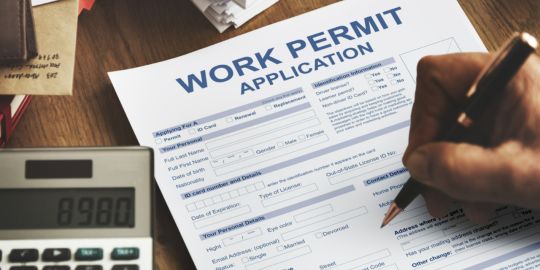Expat death in Malaysia

The loss of a loved one is always a painful ordeal, but also often complicated for those left behind, especially if it happens in another country. In Malaysia, for example, the administrative formalities following the death of a foreigner can be long and tedious. Here's a guide to get you there.
When a person dies outside the borders of their native country, and especially when their relatives are in another country, the latter often face disarray when it comes to carrying out post-mortem administrative procedures such as the declaration of death, the organization of the funeral or even the probable repatriation of the body of the deceased. Therefore, relatives of expatriates who die in Malaysia are invited to first call on their embassy or consulate to help them carry out all the necessary procedures.
All foreign embassies and consulates in Malaysia offer services to the relatives of their deceased nationals, and above all, they are instrumental in guiding the family through the various stages following death. Most of these services, unfortunately, require the payment of administrative fees. The first thing to know about deaths in Malaysia is that an autopsy is only performed in the event of a suspicious death. In any case, any death certificate must state the cause of death. However, the police have the power to request that an autopsy be carried out on any corpse, even if the death has been declared natural.
When a person dies without being hospitalized in Malaysia, a police report must be filed. The next of kin of the deceased must give the police any relevant medical file and all of their official papers (passport, identity card, residence permit, etc.). Under such circumstances, the police would generally request that an autopsy be performed, unless natural death has been convincingly proven. The medical examiner will then send an autopsy report to the police, who will use this to decide what to do next.
Note that during autopsies carried out in Malaysia, certain body parts may be kept without the consent of the next of kin. If you want to avoid this, you will need to request that your embassy or consulate send the medical examiner and the police a request before the autopsy, to prevent this from happening. If the death occurs in a hospital, the post-mortem report of the attending physicians can be obtained against payment but is only accessible to the next of kin or their legal representatives.
Registration of death
The National Registration Department (NRD) has an obligation to register any death occurring in Malaysia within 24 hours of the declaration of death. As previously stated, the cause of death will be stated in the death certificate.
All information concerning the deceased person will then be recorded in the NRD database, which will be accessible to any officer working for this institution. You can request a copy of the death certificate from any regional branch of the NRD, provided you pay an administrative fee.
Most expatriate deaths are also reported to consular authorities or the Malaysian embassy in the deceased's country of origin. This procedure is required if repatriation of the body is desired but is not mandatory. However, we advise you to do so even if you do not wish to request the repatriation of the body, since most consulates and embassies offer valuable assistance to their nationals who have lost a loved one. Trusted contacts for funeral arrangements and administrative procedures can also be provided to the bereaved family.
Funerals
When an expatriate dies on the premises of a hospital or clinic, the doctor who attended the patient has the duty to certify the cause of death within 24 hours of death. The healthcare facility will then issue the following documents to the next of kin:
- The National Registration Department (NRD) Death Registration Form
- Burial permit (only in cases where the deceased will be buried in Malaysia)
Funeral rites cannot take place without these documents. The duly completed documents must be sent to the director of the mortuary company in charge of organizing the funeral. The said funeral company will then take care of the burial, the cremation or any other funeral practice desired by the family of the deceased. The company may also take steps to repatriate the body if the family so wishes.
Most hospitals and clinics in Malaysia have their own funeral services. Separate services are available for adherents of the Muslim faith, the country's main religion. These services offer funeral religious practices from the world's major religions, including Catholicism, Hinduism, Protestantism, Islam, and others.
If the person dies outside a hospital, the police must register the death and issue the burial permit. The funeral director will have to wait to obtain the green light from the police to organize the funeral of the deceased. In cases of burial or cremation in Malaysia, there is usually no investigation carried out by the authorities of the country of origin of the deceased, but this depends on the arrangements made by each country.
Repatriation of the body
To obtain authorization to repatriate the body of a deceased expatriate to his country of origin, the next of kin or his or her legal representatives must submit the various related documents (declaration of death, death certificate, and police report if this is necessary) to the local Health Department. After the examination of the documents, a repatriation authorization will be issued by the responsible officer.
The funeral director will usually then take care of liaising with the airline chosen to bring the remains of the deceased back to his native land. Once the flight is confirmed, the coffin will be sealed. The diplomatic authorities must also provide a letter of no objection to validate the repatriation of the body.
The procedure for repatriating a deceased loved one from Malaysia may also differ depending on the place of death. In the event of death outside the confines of a clinic or hospital, a police report must be made for the repatriation authorization to be issued. Once the police investigation has been completed and no objections have been raised against the repatriation procedure, the police will instruct the funeral director to begin the process and contact an airline.
Personal belongings
The personal belongings of a deceased person in Malaysia are generally the responsibility of the funeral director, who will make all necessary arrangements so that the deceased's belongings are handed over to the next of kin as soon as possible after obtaining the death certificate. In the event that the next of kin is not in Malaysia, the funeral director has a duty to contact the family and arrange for the deceased's belongings to be sent to them, unless the deceased wishes otherwise. The cost of postage and freight is borne by the next of kin or family of the deceased.
The police may decide to keep some of the deceased's belongings, especially in suspicious death cases, if they have any legal value. The police have a duty to keep the deceased's belongings as they are and return them to the family when they are no longer needed. This usually happens after the conclusion of a possible legal proceeding, which can sometimes take years if it is a murder trial, for example.
Legal aid
If the family has the means, getting the services of a local lawyer to assist during all the steps following the loss of a loved one can greatly facilitate things. The services of a lawyer in Malaysia generally cost between 250 and 500 RM per hour in Malaysia. Small legal firms may charge between RM300 and 1,500 per hour for their services, while larger, more reputable firms charge between RM750 and 5,000 per hour. In cases of the death of a loved one, it is wiser not to seek the services of a high-end barrister since the procedures and related steps can be carried out efficiently by any basic lawyer.
However, if a third party is implicated in relation to the death, the family can choose to take civil action and claim any damages. In this case, and if your scholarship allows it, the services of a more experienced lawyer would be useful. You should know that the Malaysian government does not offer any compensation to bereaved families following accidental or murderous death and that only legal proceedings allow relatives to obtain damages.
If you cannot afford a lawyer, the Malaysian government offers free legal aid through the Malaysian Legal Aid Bureau. This legal aid is subject to a means test. You will need to prove that you cannot pay a lawyer out of pocket if you wish to benefit from it. Only those earning less than RM25,000 per year can apply for this government assistance.
In addition, the Malaysian Bar Association also offers free legal aid to the needy, offered by members of the Bar Association on a pro bono basis. To benefit from such, candidates must provide the bar with their payslips and all documents relating to their assets. Requests are studied on a case-by-case basis, and the Bar reserves the right to refuse certain requests without supporting documents. Application for this legal aid must be filed at a Legal Aid Bureau. Check the Malaysian Bar website to find the office closest to you.
In the event that the deceased has entrusted his last wishes to a legal firm in his country of origin, it is up to the family to contact local lawyers in order to transmit the wishes of the deceased to the various local authorities concerned. All you have to do is connect the lawyers on both sides, and they will work together on behalf of the family. Your country's diplomatic authorities can help you find legal Malaysian contacts if needed.
Road accident deaths
Deaths from road accidents in Malaysia are routinely investigated by traffic police. In this specific case, in addition to the usual documents, the next of kin must give the investigators all the road documents relating to the deceased if he was driving at the time of the accident (Malaysian, foreign or international driving license, bill of sale or rental of the vehicle, as well as all the required vehicle papers). The vehicle, regardless of its condition, will also be handed over to the police for investigation. It will be returned to the family following the investigation or any legal proceedings. If the vehicle is no longer roadworthy, it will be sent to a junkyard. The roadworthiness certificate of the vehicle is issued by the police.
Good to know:
While most funeral companies in Malaysia offer traditional services, be aware that this area of activity is not spared from the massive digitalization that this country is currently experiencing. Life Eternity Group Berhad, for example, a large local funeral group, launched fully digital funeral services in November 2021. Through its online portal, you can order and personalize the funeral rites of your deceased loved one. Different packages are available depending on the religion and means of the family.
Useful links:
National Registration Department (for death registration)
Malaysian Government Funeral Scheme









